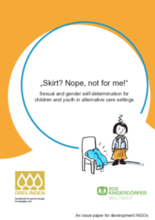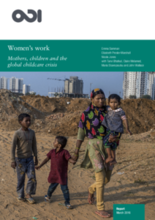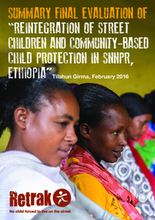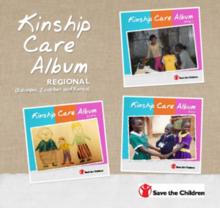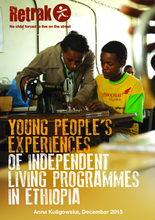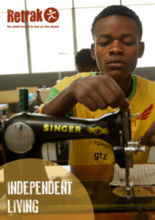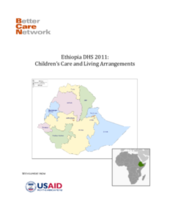childrens_living_arrangement
children_living_without_bio
Displaying 81 - 90 of 158
This issue paper explores the experiences of lesbian, gay, bisexual, transgender and intersex (LGBTI) children and young people in alternative care settings and highlights some promising practices.
This report and summary explores the current childcare policy failures across a range of case-study countries, including Viet Nam, Gaza, Mexico, India and Ethiopia, and highlights examples of progress in countries which are successfully responding to these challenges.
This study examines whether parental migration can affect health and cognitive ability of left-behind children aged at 5-8 years old in Ethiopia, India, Peru, and Vietnam.
The goal of this final evaluation is to build on the mid-term review of a 3-year pilot community project established to address some of the push factors that were leading many children to come to the city of Addis Ababa from Ethiopia’s southern region (SNNPR).
This Regional Kinship Care Album is a compilation of the 3 country albums (Kenya, Ethiopia and Zanzibar) bringing together information from children, young people and adults collected during the Kinship Care Research that took place in each of the three countries from late 2013 through 2014.
This study sought to inform improvements in service delivery of Retrak’s Independent Living programme by listening to and documenting the voices of participants.
In this video from the BBC, Clive Myrie reports from Ethiopia, the first stop for many Eritrean migrants en route to Europe. The video features a few of these child migrants who are waiting in Ethiopia to make their way to Europe in hopes of a better life.
This literature review explores current international and selected national policy on independent living arrangements and examines the evidence of good practice from existing independent living programmes for care leavers in order to assess how both of the above can be applied to street-connected children.
This country brief provides an overview of data on children’s living arrangements in Ethiopia, extracted from the 2011 DHS survey.
This interpretive study examines the experiences of 54 Ethiopian emerging adults who had aged out of institutional care facilities.

